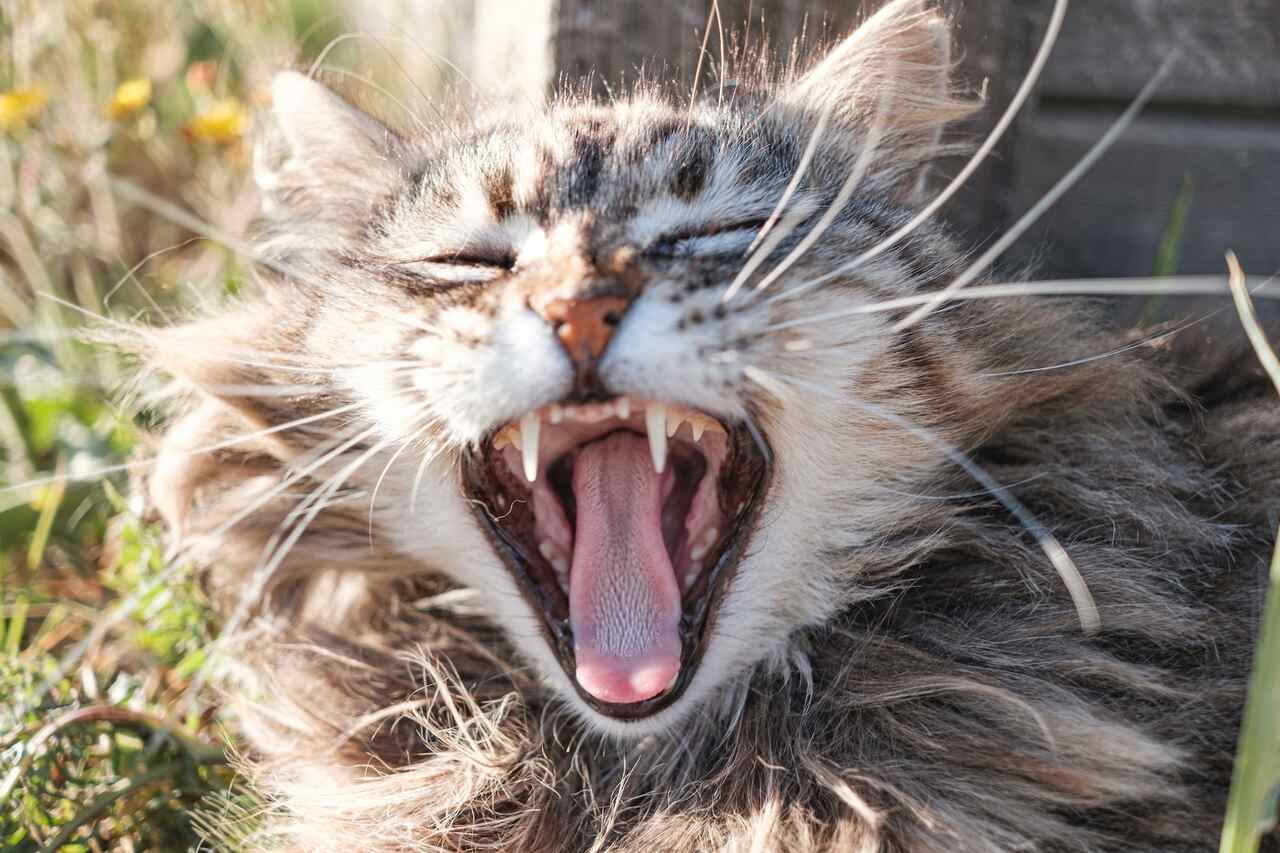
Some cats tend to develop dental plaque and tartar, which can lead to discomfort and other complications.
+ Collection of hilarious videos brings together dogs, cats, rabbits, horses, and even goats
+ Do you like cats and laughing? These videos were made for you
+ These hilarious videos of crazy dogs and cats will brighten up your week
It is essential for pet owners to understand the need for specific dental hygiene care for their cats and adapt their diets to enhance their quality of life and well-being.
Tartar, or dental calculus, is the buildup of bacterial plaque on the surface of the animals’ teeth, with calcium deposition on this biofilm, forming a hard layer, and its progression can result in periodontal disease. The symptoms of periodontal disease can be identified by pet owners through: bad breath, excessive salivation, difficulty chewing, mouth itching, loss of appetite or reluctance to eat, discolored teeth, spots that may be yellowish or even darker near the gums, as well as signs of inflamed or bleeding gums. In cases where periodontal disease has already set in, the pet owner should take their cat to the veterinarian for the most suitable treatment for each case. In addition, regular check-ups for oral cavity evaluation are also crucial in preventing this problem.
Felines have only one set of adult teeth, so it is important to start caring for their dental health from an early age. After eating, bacteria naturally settle on the teeth, leading to the formation of bacterial plaque. Therefore, the need to brush their teeth daily to prevent the accumulation and formation of tartar, which can later result in periodontal diseases and/or other health issues.
For a successful dental cleaning for your pet, it’s important for the process to be gradual, as most cats may resist brushing. Patience is also essential, as each animal has its own adaptation pace.
In addition to daily brushing, adjusting the diet can also help in maintaining dental health. “We recognize the importance of providing pet owners with an effective solution for feline dental health. That’s why the launch of Dental Care represents a significant advance in cat dental health care, promoting greater well-being and quality of life for them,” says Letícia Tortola, Veterinarian and Scientific Communication Coordinator for Royal Canin Brazil.
ROYAL CANIN® Dental Care food provides balanced nutrition tailored to support the dental health of cats. Its formula is enriched with an active dental agent that binds to calcium in saliva to help reduce tartar formation. The kibble is designed with a specific texture to create a brushing effect on the animal’s teeth during chewing. The brand’s internal studies have shown that the food helped reduce tartar formation by up to 59% in 28 days.
ROYAL CANIN® Nutritional Health for Sensitivity Line foods are designed to help pet owners address the nutritional challenges of cats and dogs with specific sensitivities through an innovative portfolio of nutritional solutions to meet the individual needs of each pet.

